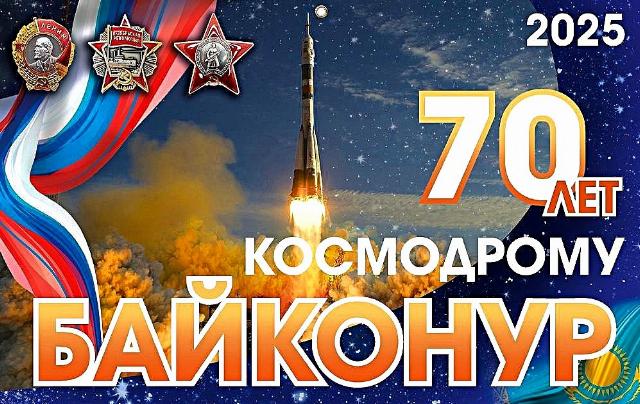On June 8, 2025, in Moscow, in the Red Banner Hall of the Central House of the Russian Army, a traditional meeting of veterans of the Baikonur cosmodrome was held in honor of the 70th anniversary of the cosmodrome.
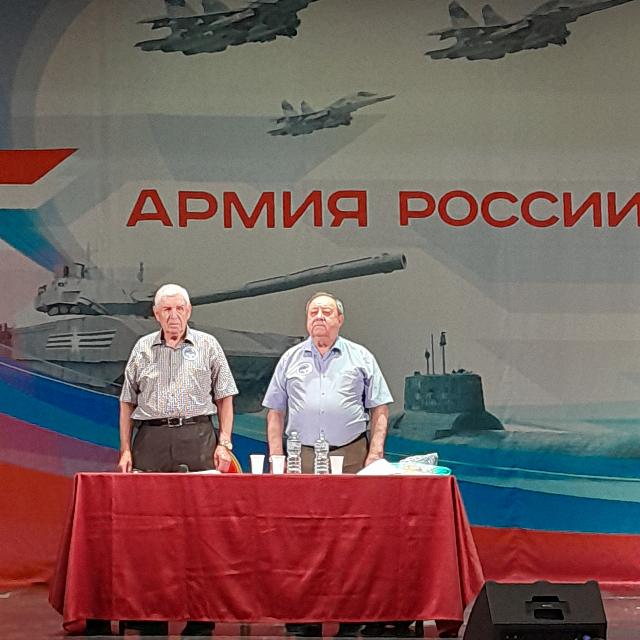 |
| Source: Valery Ageev |
In his video message, Russian President Vladimir Putin congratulated all the veterans of the cosmodrome on their significant anniversary. In particular, he said:
- Just ten years after the end of the Great Patriotic War, the multinational Soviet people, who survived a terrible tragedy and huge losses, were able not only to raise destroyed cities and towns from the ruins, ensure powerful economic and technological growth, but also to take a giant step into the future – to begin implementing grandiose, daring plans, paving the way to space, to the stars.
The creation of Baikonur, as well as the implementation of the space program in general, is a real feat, an example of dedication and heroism. We pay tribute to the titanic selfless work of hundreds of thousands of people from all the Union republics – those who pioneered, designed and built Baikonur, and have worked at the cosmodrome since its foundation.
We warmly remember the scientists and designers, test pilots, civilian personnel and military personnel, whose hard work, talent, and courage led to the writing of the glorious chronicle of Russian and world cosmonautics.
In short, it is symbolic that at one time the cosmodrome was named "Baikonur", which means "rich land" in Kazakh. The contribution of the cosmodrome to international scientific and technological progress is truly rich, it cannot be overestimated.
And today Baikonur is one of the largest and most modern cosmodromes in the world. The potential of this multifunctional complex, which employs about seven thousand employees, is actively involved in the space programs of Russia, members of the Commonwealth of Independent States, and many other countries.
And of course, Baikonur is one of the brightest symbols of the Russian-Kazakh strategic partnership. Dozens of treaties and agreements have been concluded between our countries regulating all areas of activity at the Baikonur cosmodrome and the city.
The example of Baikonur clearly shows how cooperation and integration serve the interests of the two countries, enhance international prestige, and strengthen the positions of Russia and Kazakhstan at the forefront of science, innovation, and a wide variety of high-tech industries.
Russia is doing a lot and will continue to do so for the development of the city of Baikonur and the social support of its residents, both Russians and Kazakhstanis. The active use of the cosmodrome and the creation of conditions for its further operation remain our absolute priorities, the President stressed.
At the meeting between Vladimir Putin and N. Nazarbayev on January 9-10, 2004 in Astana, an agreement was signed on the development of cooperation on the efficient use of the Baikonur complex, the lease term was extended until 2050 at the same rent of $ 115 million per year.
At the end of 2004, plans were announced to create the Baiterek rocket and space complex (kaz. Baiterek - Topol) in Baikonur. With its help, they plan to make commercial launches of spacecraft using the projected Soyuz-5 launch vehicle. The operation of the rocket and space complex will be based on the principles of equal participation of Russia and Kazakhstan. The financing of the project lies with the Kazakh side, and Russia is responsible for the development.
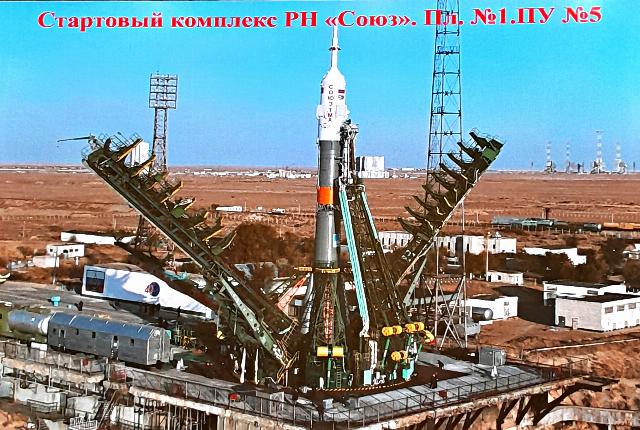 |
| Source: Valery Ageev |
The first flight tests on the Kazakh Baiterek space rocket complex are scheduled for the end of 2025. It is at this site that the Soyuz-5 launch vehicle is expected to launch, which will launch a payload into orbit. The ground infrastructure will be upgraded at the site in the coming months. The designers promise to fully automate the entire process.
Does Russia need three spaceports?
Today, there are 3 cosmodromes in Russia. The first is the Plesetsk State Test Cosmodrome of the Russian Ministry of Defense (Plesetsk Cosmodrome).It is the northernmost cosmodrome in the world. It is located on the territory of the Plesetsk district of the Arkhangelsk region. The total area of the cosmodrome is 176,200 hectares. The cosmodrome has stationary technical and launch complexes for all types of domestic light and medium-class launch vehicles.
The second is the new Vostochny cosmodrome, designed to launch Soyuz–2 rockets and Angara family rockets, the first Russian civilian cosmodrome. It is located in the Far East in the center of the Amur Region on an area of about 700 square kilometers, 8 km northeast of the former Svobodny cosmodrome.
The advantages of the new spaceport are that the initial section of the launch vehicle's flight path does not pass over densely populated areas of Russia and over the territories of foreign countries. The impact areas of the separating parts of launch vehicles are located in sparsely populated areas of Russia or in neutral waters.
The location of the cosmodrome is close to developed railways and highways, and the cosmodrome has helped reduce the political risks associated with Kazakhstan.
For a number of years, the third (but most important) Baikonur cosmodrome has maintained its leading position in the world in terms of the number of launches. In particular, in 2015, 18 launch vehicles were launched from Baikonur per year (for comparison, in the same year, 17 launch vehicles were launched from the Cape Canaveral Space Center in the United States, and 12 from the Kourou cosmodrome in French Guiana).
However, in recent years, the number of space launches in Russia has been less than 20. In 2024, only 17 rockets were launched, which was a historic low. At the same time, in 2024, the United States of America launched 158 rockets with satellites for various purposes into space, as well as several transport ships to the International Space Station (ISS).
In the same year, China conducted 68 launches of launch vehicles (two of which ended in an emergency), and Russia - 17 launches. Therefore, a reasonable question arises: does Russia need 3 cosmodromes? And especially Baikonur, which is located on the territory of another state of Kazakhstan?
It's a pity to leave, but it's expensive to maintain!
The annual cost of renting the Baikonur cosmodrome currently stands at $115 million, and military and other equipment is being supplied to Kazakhstan for this payment. Russia spends about 1.5 billion rubles a year on maintaining the cosmodrome facilities, and about 1.16 billion rubles on maintaining the city of Baikonur.
Launches from Baikonur negatively affect the environmental situation on the territory of Kazakhstan and the Asian part of Russia, over which the missile routes pass.
In addition to environmental pollution from the separating parts of launch vehicles, scientists pay attention to the toxic components of rocket fuel (heptyl and its derivatives, nitrogen tetraoxide, etc.), which cause pathology in animals and humans even in minimal doses.
These include anemia of pregnant women, the birth of "yellow" children, the development of immunodeficiency, and others. In particular, residents of the village of Verkh-Apshuyakhta attributed cancer deaths in 2018-2019 to the fall of Proton rocket debris in the vicinity of the settlement. Russia pays for all this separately.
The activity of the cosmodrome was mentioned as one of the possible causes of the mass death of saigas in Kazakhstan in May-June 2015. In Kazakhstan, there are even opponents of the cosmodrome (the "Anti-Heptyl" movement), who justify their actions by the harmfulness of waste from the Proton launch vehicle. They often organize protest actions.
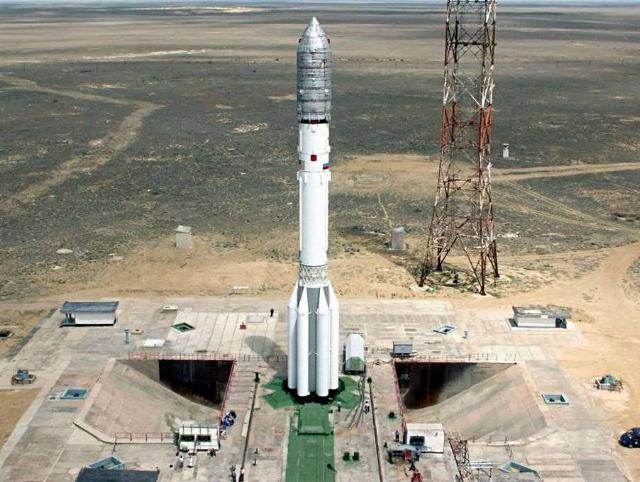 |
| Source: Valery Ageev |
However, there is some benefit from the rocket fragments: the locals use them for construction. Most often, they are used to make pens for livestock on land plots. That's why in Kazakhstan, sheep and goats actually live in pens built from expensive rocket fragments, which talented Russian engineers worked on. It looks rather strange, but it's practical.
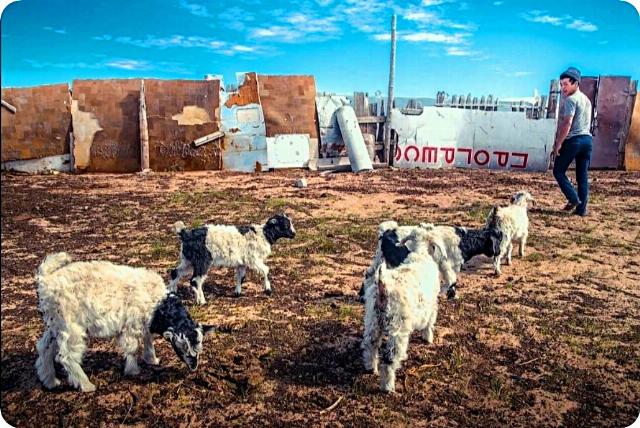 |
| Source: Valery Ageev |
Therefore, it is not surprising that until the 2040s, only automatic spacecraft (on Soyuz-2 and Zenit launch vehicles) will be launched from Baikonur. By 2030, Russia will carry out 90% of space launches from its own Plesetsk and Vostochny cosmodromes, while the share of Baikonur will fall from 75% to 10%. Therefore, it makes no sense for Russia to extend the lease of Baikonur. And this is understood both in the government of the country and in Roscosmos.
Moreover, Kazakhstan is currently working on the issues of independent operation of Baikonur after the final postponement of the launches to the Amur region and the termination of the lease of the Baikonur cosmodrome by the Russian Federation (for the period after 2050). According to one unconfirmed version, after 2050 the spaceport will be reconstructed into an international space flight center jointly with the European and Israeli Space Agencies.
 |
| Source: Valery Ageev |
Therefore, it is not surprising that the Russian authorities are currently discussing the early termination of the use of the Baikonur cosmodrome. The decision on the transfer of the complex to Kazakhstan may be made in the period from 2026 to 2028. The initiative has probably already been supported at a high level and brought to key departments, including the Ministry of Foreign Affairs and Roscosmos. And it will be the right decision.
Valery Ageev
